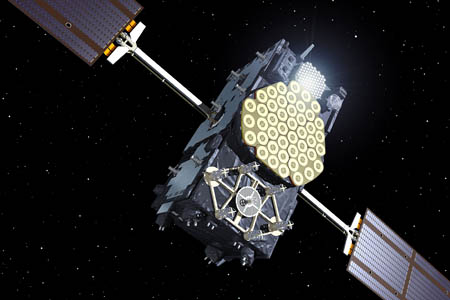The launch of the first two satellites in a new system that would provide greater navigational accuracy for outdoor enthusiasts has been delayed.
The two Galileo satellites were due to be carried into orbit this morning by a Russian Soyuz rocket, but the countdown was stopped when fuelling problems occurred.
The project, being run by the European Space Agency, will eventually see a satellite-navigation system that will provide one-metre accuracy to outdoor enthusiasts and other public users of the free network.
Paying users will benefit from even more accurate fixes.
The two 700kg in-orbit validation satellites were due to be blasted more than 23,000km above the earth at 11.34am (British Summer Time) today, but the launch from French Guiana was halted.
The European Space Agency announced the launch had been rescheduled for Friday 21 October at 11.30am British Summer Time.
The two Galileo satellites are due to be followed next year by two more.
The initial four, built by a consortium led by EADS Astrium Germany, will form the operational nucleus of the full Galileo satnav constellation.
They combine the best atomic clock ever flown for navigation – accurate to one second in three million years – with a powerful transmitter to broadcast precise navigation signals.
The Galileo system has been designed to integrate with the existing American-owned Global Positioning System and the Russian Glonass satellites.
When fully operational, the Galileo constellation will consist of 27 working satellites plus three spares circling Earth in three circular medium-Earth orbits, at an altitude of 23,222km.
The system will give better signal coverage at high latitudes, and will be independent of the US military, which controls the GPS signals and can turn off coverage during times of heightened military tension.
The first operable Galileo service for general users is expected to be available in 2014, with full capability by 2019.
The Galileo European Geostationary Navigation Overlay Service, which relies on ground bases and three satellites, is already in operation, providing increased accuracy to existing global navigation satellite systems.

Andy
20 October 20112114? hmmmm
Bob
20 October 2011A slip, now corrected, but who knows? Bob, editor
Margaret
12 December 2011Please remember the American Global Positioning System (GPS) is called NAVSTAR